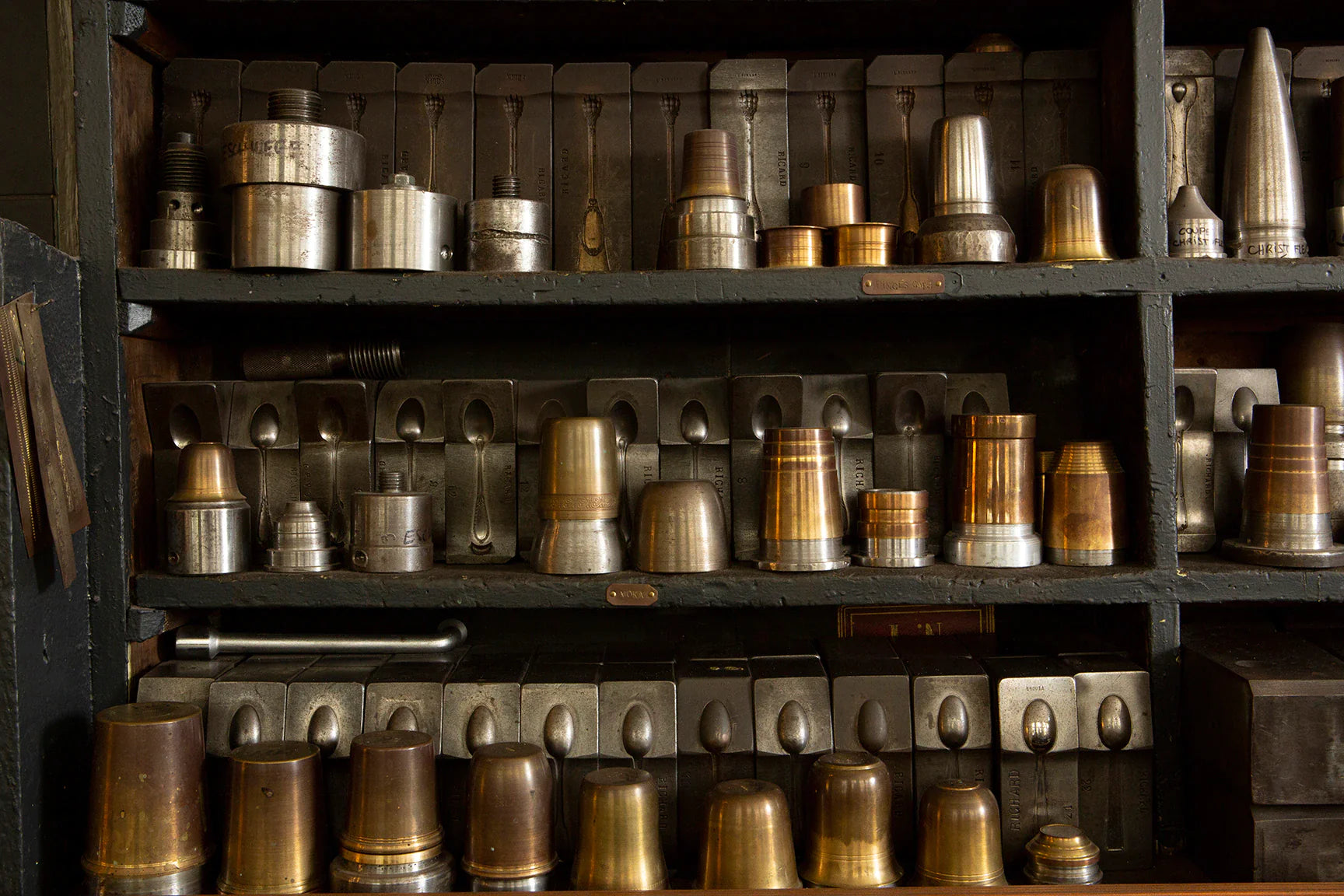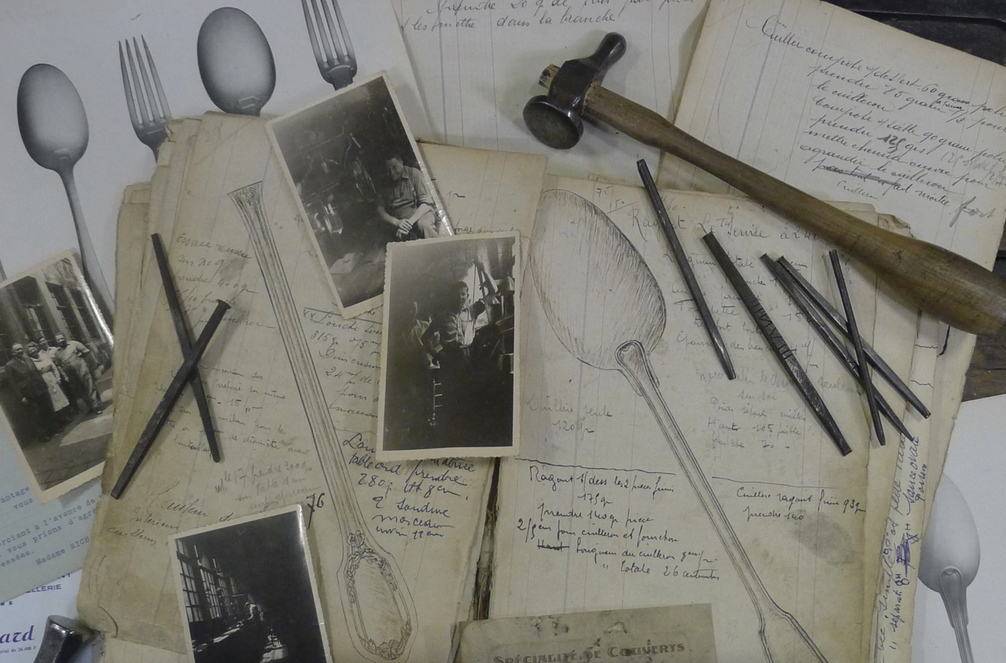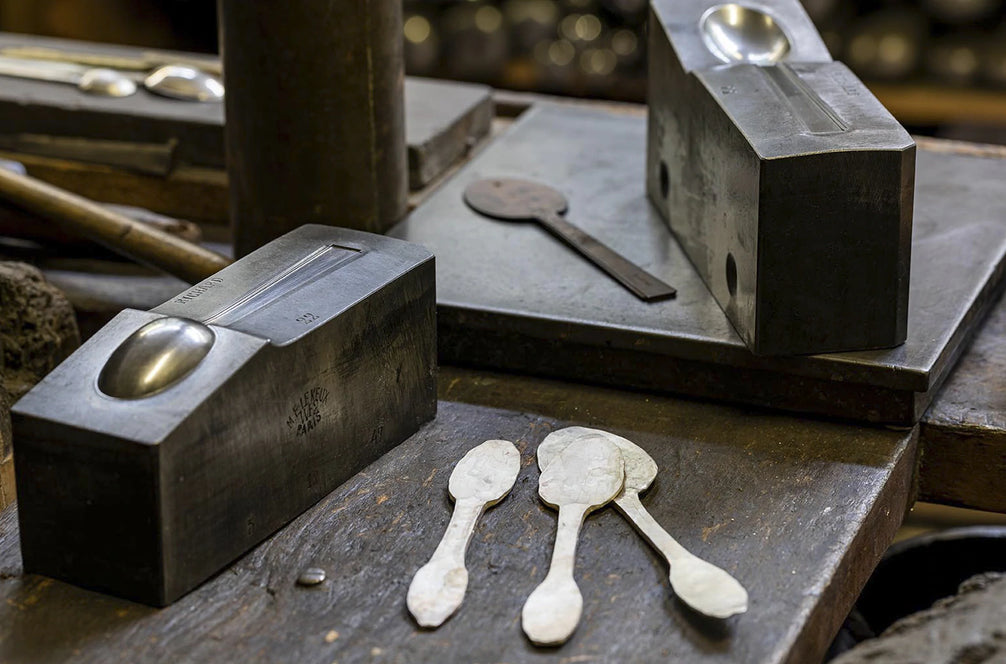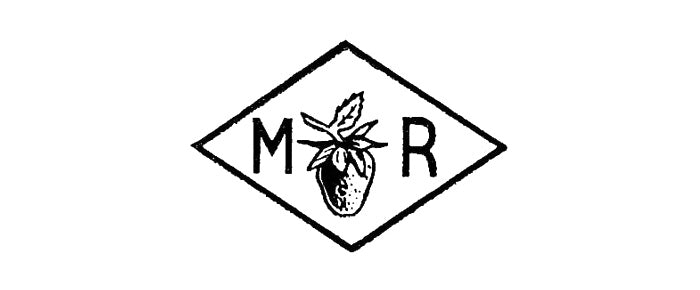
Continuing for more than a hundred years, Richard Orfèvre is one of the last goldsmith manufacturers in France to have preserved an artisanal manufacturing process.
Opening the door to its workshops, in the heart of the Marais district in Paris, is to see more than a century of heritage and know-how of the French art of living reborn before your eyes. Originally, Edmond Ricard, a goldsmith, decided to create his workshop in 1910 by taking over from Maison Grandvigne located at 30, rue des Gravilliers. Since then, over the decades, five generations of passionate goldsmiths have followed one another at this address, united by the same passion; that of perpetuating an exceptional tradition of spoon-making goldsmithing. You must therefore pass through a porch and enter the backyard of an 18th century mansion to discover this forge and workshop, where every day Richard Orfèvre's team of artisans perpetuates artisanal and traditional manufacturing. solid silver cutlery. Everyone participates in the different stages of sketching and transforming the material, using forging hammers, bolts, dies and other specific tools in turn until the final touch: two hallmarks carved into the material, to mark authenticity and the quality of the object thus manufactured. The first, the Title hallmark, bearing the image of a neck brace head to authenticate the object in solid silver. The second, the Master's mark, is a diamond with the initials of Richard Orfèvre framing two vine leaves. Two emblems sign of high-quality expertise guaranteeing French manufacturing.
Massive money, at the heart of the profession
The manufacture of solid silver table cutlery is the core business of Richard Orfèvre. All the pieces are made in solid 950 thousandths silver, table, fish, oyster or cake forks, coffee, tea, caviar, ice cream spoons... From the grandeur of the Louis XIV style to contemporary design, the collections of cutlery presented in the Richard boutique reveal the richness and refinement of French tableware. The Atelier also produces all kinds of decorative objects such as candelabra inspired by Classical styles, trays and vases with Arts Deco geometry, or even collections of original goldwork.

Pousser la porte de ses ateliers, au cœur du quartier du Marais à Paris, c’est voir renaitre sous vos yeux plus d’un siècle d’héritage et de savoir-faire de l’art de vivre français. À l’origine, Edmond Ricard, orfèvre décide de créer son atelier en 1910 en prenant la succession de la Maison Grandvigne située au 30, rue des Gravilliers. Depuis, au fil des décennies, cinq générations d’orfèvres passionnés se sont succédés à cette adresse, unis par une même passion ; celle de faire perdurer une tradition d’exception d’orfèvrerie cuillèriste. Il faut ainsi passer un porche et s’enfoncer dans l’arrière-cour d’un hôtel particulier du XVIIIe siècle pour découvrir cette forge et cet atelier, où chaque jour l’équipe d’artisans de Richard Orfèvre perpétue la fabrication artisanale et traditionnelle de couverts en argent massif.

Chacun participe aux différentes étapes d’esquisse et de transformation de la matière, utilisant tour à tour marteaux de forge, bouterolles, matrices et autres outils spécifiques jusqu’à l’ultime touche : deux poinçons insculpés dans la matière, pour marquer l’authenticité et la qualité de l’objet ainsi fabriqué. Le premier, le poinçon de Titre, à l’effigie d’une tête de minerve pour authentifier l’objet en argent massif. Le second, le poinçon de Maître, est un losange comportant les initiales de Richard Orfèvre encadrant deux feuilles de vignes. Deux emblèmes signe d’une expertise haute facture garantissant une fabrication française.
Poinçons historiques de l'Atelier Richard Orfèvre
-

1910 - 1925
-

1925 - 1934
-

1934 - 1994
-

1994 - 2012
-

Depuis 2012





